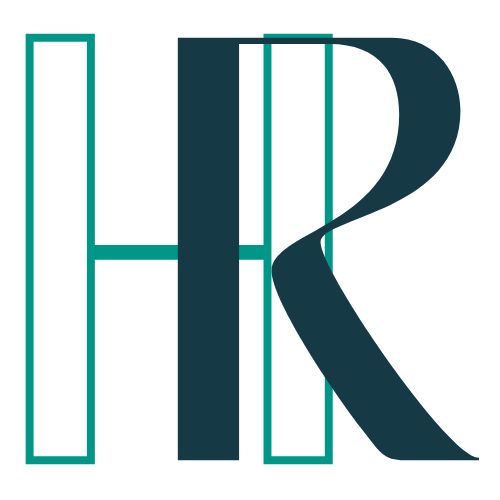Landing a nursing job interview is an exciting step toward advancing your career, but preparing for it effectively is key to making a great impression. A successful interview not only showcases your qualifications but also demonstrates your readiness to excel in the role. This comprehensive guide offers practical tips and strategies to help nurses prepare for their job interviews and increase their chances of securing their desired position.
1. Research the Organization
Understand the Employer:
- Mission and Values: Familiarize yourself with the organization’s mission, values, and culture. Understanding these aspects will help you align your answers with their expectations and demonstrate that you are a good fit for their team.
- Recent Developments: Stay updated on recent news, developments, and achievements related to the organization. Mentioning these in your interview can show that you are genuinely interested and well-informed.
Explore the Role:
- Job Description: Review the job description carefully. Pay attention to the required skills, qualifications, and responsibilities. Be prepared to discuss how your experience aligns with these requirements.
- Department and Team: Learn about the department or team you’ll be working with. Understanding their structure and function can help you tailor your responses to show how you’ll contribute to their goals.
2. Prepare Your Responses
Common Interview Questions:
- Behavioral Questions: Practice answering behavioral interview questions using the STAR method (Situation, Task, Action, Result). For example, “Tell me about a time you handled a difficult patient” can be answered by describing a specific situation, the tasks you were assigned, the actions you took, and the results achieved.
- Clinical Scenarios: Be ready to discuss clinical scenarios or case studies relevant to the job. Prepare to demonstrate your clinical reasoning, problem-solving skills, and how you handle various situations in a patient-centered manner.
Your Strengths and Weaknesses:
- Strengths: Prepare to discuss your key strengths and how they benefit your practice. Focus on attributes such as your clinical skills, ability to work under pressure, or commitment to patient care.
- Weaknesses: Address weaknesses in a constructive way. Choose a minor weakness and explain how you are working to improve it. This shows self-awareness and a commitment to professional growth.
Questions for the Interviewer:
- Prepare Thoughtful Questions: Have a list of insightful questions to ask the interviewer. These might include inquiries about the team structure, opportunities for professional development, or the organization’s approach to patient care. Asking questions demonstrates your genuine interest and engagement.
3. Practice Your Delivery
Mock Interviews:
- Simulate the Experience: Conduct mock interviews with a friend, family member, or mentor. Practice answering questions out loud to build confidence and improve your delivery.
- Feedback: Request feedback on your responses, body language, and overall presentation. Use this feedback to refine your approach.
Non-Verbal Communication:
- Body Language: Pay attention to your body language during the interview. Maintain good posture, make eye contact, and offer a firm handshake. Positive body language helps convey confidence and professionalism.
- Tone and Pace: Practice speaking clearly and at a steady pace. Avoid speaking too quickly or too slowly, and ensure that your tone reflects enthusiasm and professionalism.
4. Prepare Your Documentation
Resume and Cover Letter:
- Updated Documents: Bring multiple copies of your updated resume and cover letter to the interview. Ensure they are tailored to the position and highlight your relevant experiences and achievements.
Certification and Licenses:
- Bring Copies: Bring copies of your nursing certifications, licenses, and any additional credentials relevant to the job. Being prepared with these documents demonstrates your professionalism and attention to detail.
Portfolio (if applicable):
- Professional Portfolio: If applicable, prepare a professional portfolio showcasing your achievements, skills, and any relevant projects or presentations. This can be particularly useful for roles involving leadership or specialized practice.
5. Plan for the Day of the Interview
Logistics:
- Interview Location: Confirm the interview location and time, and plan your route to ensure punctuality. Arrive 10-15 minutes early to account for any unforeseen delays and to allow yourself time to settle.
Dress Professionally:
- Appropriate Attire: Choose professional attire that aligns with the organization’s culture. For most nursing interviews, business casual is appropriate. Ensure your clothing is neat, clean, and suitable for a professional setting.
Bring Necessary Items:
- Essential Materials: Bring all necessary items, including copies of your resume, certifications, a notepad, and a pen. Having these materials ready shows that you are well-prepared and organized.
6. Follow-Up After the Interview
Thank You Note:
- Send a Thank You Note: Send a personalized thank you note or email within 24 hours of the interview. Express your appreciation for the opportunity to interview and reiterate your enthusiasm for the role.
Reflect on the Experience:
- Self-Assessment: Reflect on your performance during the interview. Consider what went well and what could be improved for future interviews. This self-assessment can help you refine your approach and enhance your interviewing skills.
Conclusion
Preparing for a nursing job interview requires careful planning and thoughtful preparation. By researching the organization, practicing your responses, and presenting yourself professionally, you can make a strong impression and increase your chances of success. Remember, an interview is not only an opportunity for the employer to assess your fit for the role but also for you to determine if the position aligns with your career goals and values. With these tips and strategies, you’ll be well-equipped to navigate the interview process and move forward in your nursing career with confidence.

